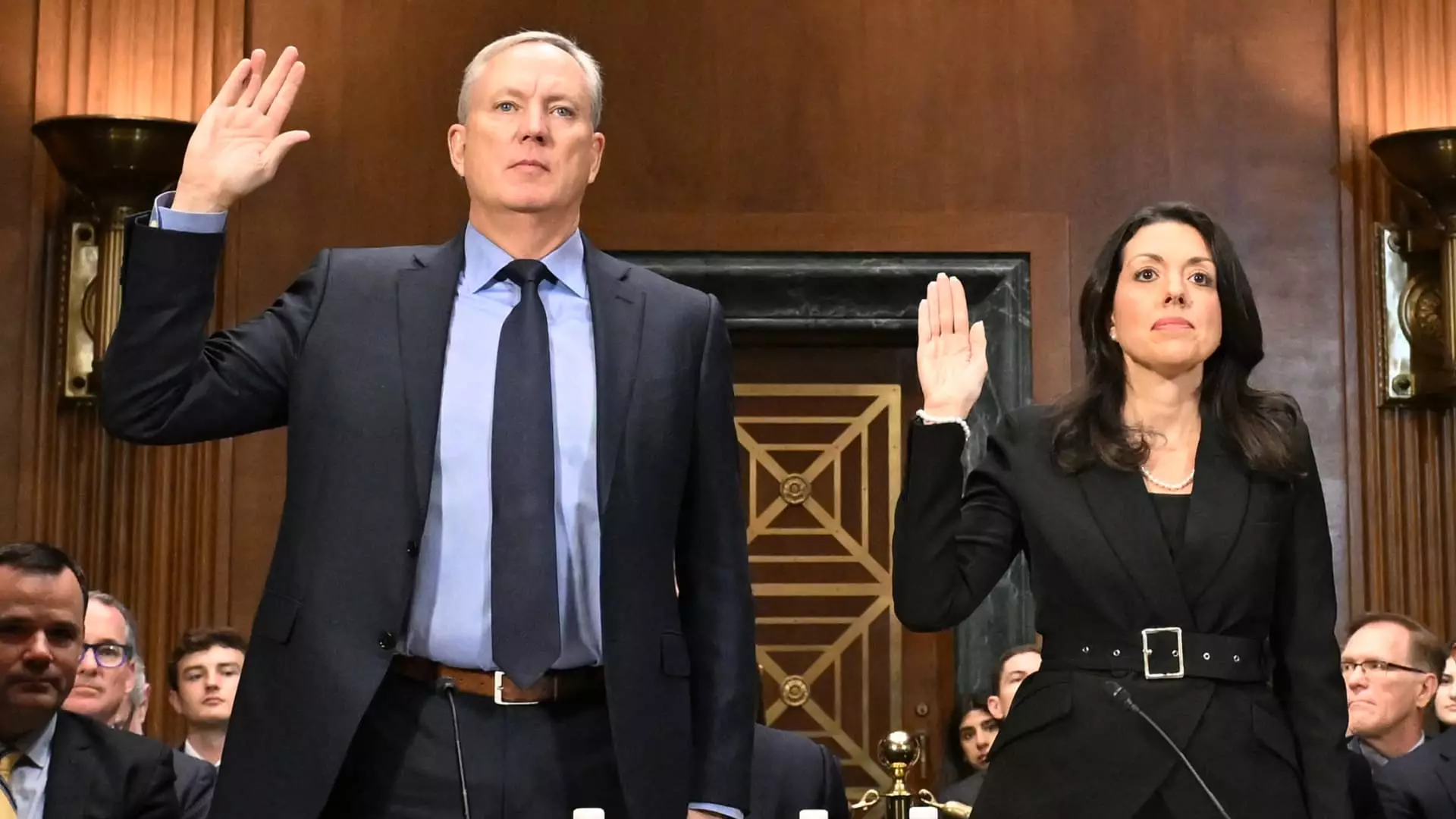In a striking demonstration of cross-party agreement, the Senate Judiciary Committee held a hearing on the much-debated issue of interchange fees controlled by Visa and Mastercard. Traditionally perceived as adversaries, both conservative and liberal senators came together to voice concerns about the monopolistic tendencies in the payment processing sector. The chair of the committee, the Democratic Senator from Illinois, Dick Durbin, expressed a consensus around the urgent need for reform, underscoring the detrimental effects these fees have on small businesses. The dominant position of Visa and Mastercard, controlling roughly 80% of the market with a staggering combined market capitalization exceeding $1 trillion, formed the crux of the discussion.
The interchange fees, commonly referred to as swipe fees, represent a significant expense for retailers. Every transaction involving a credit card incurs a charge that impacts merchants’ bottom lines. According to Durbin, these companies charged merchants over $100 billion in fees just in 2023, highlighting the financial burden placed on small business owners who struggle to negotiate these costs. Given the scale of these expenditures, it becomes essential to understand how these fee structures affect not just the retailers but ultimately consumers as well.
In response to growing frustrations over fuel-like pricing power, Durbin has teamed up with Republican Senator Roger Marshall from Kansas to introduce the bipartisan Credit Card Competition Act. This legislation aims to compel banks with assets exceeding $100 billion to present alternatives to Visa and Mastercard when processing credit card transactions. Durbin argues that this would empower small businesses by providing them a genuine choice between using established networks or opting for less costly alternatives.
This legislative proposal is a notable pivot towards enhancing competition and restoring some measure of control to retailers, who have long lamented their inability to negotiate favorable terms. The fundamental premise of the Credit Card Competition Act rests on the expectation that increased competition among payment networks would lead to lower interchange fees, allowing small businesses to thrive without being crippled by excessive transaction costs.
However, the juxtaposition of the proposal with the current market dynamics raises questions about its potential effectiveness. Would this policy truly foster a competitive landscape, or would it inadvertently complicate payment processing for small businesses?
While the proposal aims to resolve existing issues, Visa and Mastercard staunchly defend their fee structures, categorizing them as necessary incentives rather than punitive measures. Bill Sheedy, a senior advisor at Visa, articulated concerns that the Credit Card Competition Act could lead to unintended consequences. He claimed the Act may strip consumers of their autonomy over payment decisions, implying that the regulatory changes might diminish service quality.
Executives from both companies reflected on the history of past regulations, raising alarms about the potential long-term imperfections that could arise from the proposed Act. They pointed out instances where prior regulations—such as the 2010 Durbin amendment—resulted in adverse effects on competition and service offerings. The executives contended that restricting their operations could lead to a deterioration of consumer benefits, such as rewards programs tied to debit cards.
Despite the arguments presented by Visa and Mastercard, it is critical to evaluate whether the existence of such enormous interchange fees really enhances consumer welfare or merely serves to bolster the bottom lines of a duopoly.
The growing issue of credit card interchange fees is far from being an insular problem that affects only merchants; it permeates consumer spending habits. The National Retail Federation, an industry advocacy group, highlighted in a letter that these fees translate directly into higher prices for consumers. A report from Notre Dame University emphasizes that the average American incurs $1,100 annually due to swipe fees, a staggering figure that underscores how these costs seep into everyday life.
In March, a significant legal battle erupted when Visa and Mastercard aimed to settle for $30 billion to cut swipe fees by four basis points over three years. However, this settlement was rejected by a federal judge, which was indicative of the seriousness of the allegations regarding their monopoly power. Compounding this issue is a September lawsuit by the Justice Department alleging that Visa is maintaining illegal monopolistic practices in relation to debit card payments, characterizing the repercussions as affecting “the price of nearly everything.”
As the Senate Judiciary Committee continues to debate the ramifications of interchange fees and the existing market dynamics dominated by Visa and Mastercard, it is clear that substantial reform is necessary. The bipartisan Credit Card Competition Act presents an opportunity for transformative change, although its success ultimately hinges on its execution. While representatives from the card networks might cast doubt on the merits of this legislation, the overwhelming majority of small businesses and consumers could benefit from reduced swipe fees.
The transition towards a more equitable payment processing landscape presents both challenges and promises. As discussions evolve, it is imperative for stakeholders—including lawmakers, retailers, and consumers—to remain actively engaged in advocating for fairer conditions that prioritize transparency and competition in the payment ecosystem.

Leave a Reply